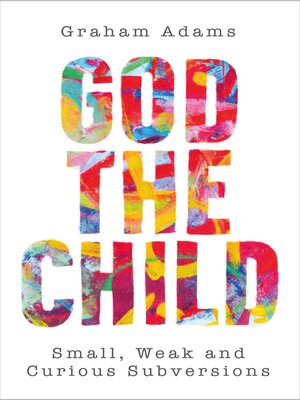
Sign up to save your library
With an OverDrive account, you can save your favorite libraries for at-a-glance information about availability. Find out more about OverDrive accounts.
Find this title in Libby, the library reading app by OverDrive.



Search for a digital library with this title
Title found at these libraries:
| Library Name | Distance |
|---|---|
| Loading... |
We express the mystery of God with diverse metaphors, but mostly in Adult terms. In this experimental theological adventure, Graham Adams imagines what might flow from a more thorough 'be-child-ing' of God. Aware that the Child can be idealized, he selects particular characteristics of childness in order to disrupt God's omnipresence, omnipotence and omniscience. The smallness of the Child re-envisages divine location in sites of smallness, like an open palm receiving the experiences of the overlooked. The weakness of the Child reimagines divine agency as chaos-event, subverting prevailing patterns of power and evoking relationships of mutuality. And the curiosity of the Child reconceives divine encounter as horizon-seeker, imaginatively and empathetically pursuing the unknown. These possibilities are brought into dialogue both with other theologies (Black, disabled and queer) and with pastoral loss, economic/ecological injustice, and theological education. Through these conversations, God the Child emerges not only as a new model for God, but intrinsic to God's new social reality which is close at hand.|We express the mystery of God with diverse metaphors, but mostly in Adult terms. In this experimental theological adventure, Graham Adams imagines what might flow from a more thorough 'be-child-ing' of God. Aware that the Child can be idealized, he selects particular characteristics of childness in order to disrupt God's omnipresence, omnipotence and omniscience. The smallness of the Child re-envisages divine location in sites of smallness, like an open palm receiving the experiences of the overlooked. The weakness of the Child reimagines divine agency as chaos-event, subverting prevailing patterns of power and evoking relationships of mutuality. And the curiosity of the Child reconceives divine encounter as horizon-seeker, imaginatively and empathetically pursuing the unknown. These possibilities are brought into dialogue both with other theologies (Black, disabled and queer) and with pastoral loss, economic/ecological injustice, and theological education. Through these conversations, God the Child emerges not only as a new model for God, but intrinsic to God's new social reality which is close at hand.







